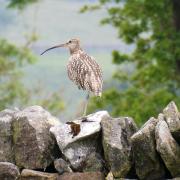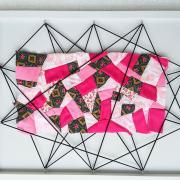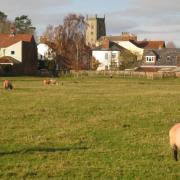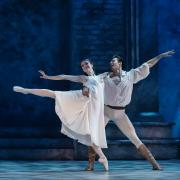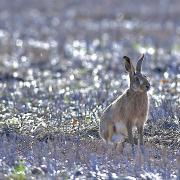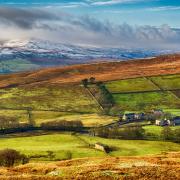Author and poet Blake Morrison enjoys many career highs not least being played by Colin Firth in a movie. Tony Greenway reports.

He is returning to his old school in Skipton to talk about his career and hand out prizes. He should be getting on with writing his speech but, instead, Blake Morrison is talking to Yorkshire Life. ‘I’ve been thinking back to when I was at school,’ he says, ‘and trying to remember how much writing I was doing then.’ The answer is ‘a lot’. And it was all poetry. ‘I’ve found an old folder of mine and I see that I did try to write a bit of a story, at one point,’ he says. ‘But poetry is interesting when you’re a self-pitying, lonely teenager. It was a natural form to turn to. I’m surprised how much of it I did write, actually, although it was all terrible. I never thought back then that I could write a play, let alone a novel.’
That just shows how wrong teenagers can be because Yorkshire-born Morrison has since written in a number of forms including memoir, fiction, poetry, journalism, literary criticism, libretti and plays — and he’s excelled in all of them. His CV bulges at the seams. Highlights include various volumes of poetry; a memoir about his mother’s early life, Things My Mother Never Told Me; As If, a controversial book about the James Bulger murder (Morrison sat in on the killers’ trial); South of the River, a state-of-the-nation novel set in Tony Blair’s Britain and The Last Weekend, a thriller that was made into a three-part TV drama with Rupert Penry-Jones. He’s also adapted various plays, worked for The Times Literary Supplement, was literary editor of The Observer and the Independent on Sunday and now teaches creative writing part-time as a professor at Goldsmiths College in London.
In the commercial realm, however, he’s probably best known for his bestselling memoir, And When Did Your Last See You Father? which was published in 1993, won a couple of literary prizes and was then made into a film with Colin Firth (playing Blake) and Jim Broadbent (playing Blake’s dad). In the book and the film, Morrison’s father, Arthur, a Yorkshire doctor, is painted as a ‘bullying, shaming, undemocratic cheat’ but as the story plays out towards Arthur’s undignified death from cancer, we — and the now adult Blake — realise that he’s a more complex human being. Author Nick Hornby was a fan and called it a ‘painful, funny, frightening, moving, marvellous book’ while Roy Hattersley said it was ‘a near-masterpiece’ noting that ‘Morrison writes with a reckless respect for the truth’. It’s said to have inspired an entire genre of confessional memoirs.
The success of the book certainly knocked Morrison for six. ‘Totally, utterly,’ he says. ‘I’d published a couple of books of poetry at that point but And When Did You Last See Your Father? kicked off in a way I could never have anticipated. It just caught a moment. There was an emotional honesty about it, about death and illness and loss... It changed everything for me.’
Morrison only had a tangential connection with the movie, which was made 14 years later. ‘I never believed it was going to happen because this was the third film company to have optioned it. I hadn’t even read the screenplay until I knew it was definitely going ahead. When I did, I had one or two suggestions to make. But if the film had been made closer to the novel coming out, I’d have felt much more possessive about the material. I’d realised by 2007 that you have to let it go and let another writer and director make of it what they will — and that the film is not the book. I thought they did a very good job of it.’
And, it can’t have been bad that Colin Firth was playing you? ‘Not too bad,’ he laughs. Not that Firth consulted Morrison about how he should approach the role. ‘No, he didn’t,’ says Morrison. ‘But that wasn’t the point, really. I met Colin, I went onto the set a couple of times and we had a good chat and got on. He didn’t feel he needed to research it — and fair enough.’ He says it was more important that Jim Broadbent, who was playing the main character, find out about his dad.
Morrison’s parents were both doctors, but neither was well-read. ‘My dad wasn’t a reader at all,’ he says. ‘The only book I remember him reading was Jaws and that was because he’d seen the film. I don’t know if he finished it. My mum would read a bit: the odd Dick Francis or something like that. There weren’t that many books in the house.’
So where did Morrison’s love or reading and, more to the point, writing come from? ‘I don’t know,’ he admits. ‘In the fifth form, my English teacher made me feel I was sensitive to literary texts. I had a passion for literature that surprised me, and that he picked up on.’
It’s obvious that Morrison likes variety in his work. Next year he has a new novel coming out. Next month, his adaptation of Alain-Rene Lesage’s 18th century French comedy, Turcaret, comes to the Viaduct Theatre in Halifax and the West Yorkshire Playhouse in Leeds (it then lands at the Lawrence Batley Theatre in Huddersfield in October, Scarborough’s Stephen Joseph Theatre in November and the York Theatre Royal in December). Retitled For Love or Money, it’s another of Morrison’s collaborations with Barrie Rutter’s Halifax-based Northern Broadsides. He isn’t completely sure how many projects he’s notched up with the company to date. It could be eight or nine.
‘Ishia Bennison, who’s acted with Barrie, was in a production of Turcaret in the 1990s and thought it deserved to be revived,’ says Morrison. ‘Strangely, the writer who did the translation was a friend of a friend, so I met him and got a copy of the text. I was able to think about it and see if there was a potential to “Northern Broadsides” it.’ There was, as it turned out. So rather than set it in Paris in the early 1700s, Morrison has transplanted the action to a small Yorkshire town in the 1920s.
Morrison always enjoys working with Broadsides. ‘Barrie’s keen on unusual dialect,’ he says. ‘Not every character in the play can speak that way, but one or two are bound to. That’s always fun to do. My accent isn’t as broad as it was when I grew up in Skipton, but some of it’s still there in the memory bank, so I either raid that or go to a dialect dictionary. It enriches the language and can be used for comic purposes although that kind of idiom can have a tragic resonance, too. I’ve seen a lot of Broadsides over the years as a member of the audience and know what their values are and like to think I know what will work for them.’
Morrison lives in south London these days, but misses Yorkshire so relishes the chance to get back whenever he can. It inspires him to write. ‘It’s still there, in me,’ he says. ‘It’s where I came from. Mostly I think it was a fairly happy childhood and my natural landscape, where I grew up, is there.’
His favourite place in the county is the Yorkshire Dales. ‘They call Skipton the gateway to the Dales, and we lived on the fringes of it so I have a particular fondness for that area. And you’ve got the coast as well, of course. Yorkshire continues to be important to me. My sister is still there, I have a friend at Leeds University and I value the relationship I have with Northern Broadsides, because it keeps bringing me back.’
September 15th - 23rd
For Love or Money, Viaduct Theatre, Halifax




